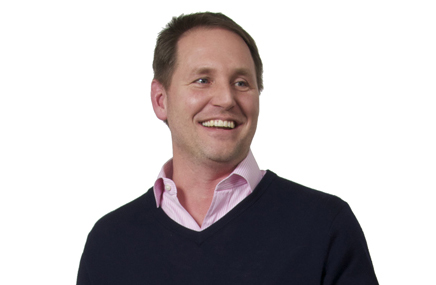Under CEO Michael Cunnion, Remedy Health is building a different model of health content provision than such portal competitors as WebMD and Everyday Health have. The company, which owns HealthCentral, is less dependent on advertising revenue than its rivals, having established a healthy sideline in subscriptions and licensing deals with health plans and hospitals—a diversified approach which seems well-suited for the post-blockbuster era.
In Cunnion, the company has a seasoned health tech entrepreneur at the helm. After studying literature and languages at Florida State—he aspired to be a writer in the mold of literary heroes like Hemingway and Kerouac, but wasn’t sure he had the chops, he says—Cunnion got his start in digital health at MedCast, which WebMD acquired in 1998.
“I always had an interest in the medical universe,” says Cunnion, who joined MedCast after a stint in medical devices. “I found it fascinating how care gets delivered, and I’ve been very fortunate to be involved in companies that have had a real sense of mission about trying to improve how healthcare gets delivered for millions of patients. These companies can be hugely successful and create so much societal benefit.” After six years with WebMD, where he rose to Consumer Marketing Director, Cunnion joined a startup, HealthTalk, which sold to Revolution Health in 2007. He left a year later, when Revolution Health was acquired by Everyday Health, for Remedy Health.
In 2011, Remedy acquired HealthCentral—and with it, a content-generating juggernaut that had been an also-ran in the portal wars. HealthCentral brought in several million monthly unique visitors plus a network of bloggers and patient experts, but Remedy still lagged in video, so the company brokered a content share deal with HealthiNation last summer while moving aggressively to beef up in-house video production. In November, Remedy launched Patient Health Services, an effort to close the patient-physician loop by offering doctors an advertising-supported means of pushing health information, whether general or condition-specific, to consumers. It achieved a 45% open rate in pilot. An appointment reminder add-on is in the works. In February, Remedy launched a health and wellness platform meant to leverage the prestige of its longtime partner the University of California-Berkeley School of Public Health. BerkeleyWellness.com will deliver wellness information to consumers with the customary interactive spoonfuls of sugar—quizzes, slideshows, email alerts and social media feeds, along with roundtables and video chats featuring Berkeley experts. The school and the publisher will produce content collaboratively, and advertisers will be vetted by a Berkeley advertising review board.
“It’s an exciting new chapter in this relationship, which we’re really proud of,” says Cunnion. “We think wellness and prevention are going to become more important, and we’re really excited about doing more on that side.”
The firm has around 150 employees spread across four offices—two in New York, one in Arlington, VA and one in North Hampton, MA. It’s owned by a consortium of investors, including Veronis Suhler Stevenson, Polaris Venture Partners, Carlyle Group and Sequoia Capital.
Advertising still makes up about two-thirds of Remedy’s revenues, with subscriptions and licensing revenues making up the rest, but the company has big plans to increase those revenue streams.
“We’re going where the consumers are going,” says Cunnion, “which is all about how do we keep them out of the healthcare system, and how do we measurably show improvement in their health engagement. And that’s where we see ourselves—leveraging great technology building content to help consumers stay more adherent to treatment, more engaged in their own wellness.”
From the March 01, 2013 Issue of MM+M - Medical Marketing and Media








